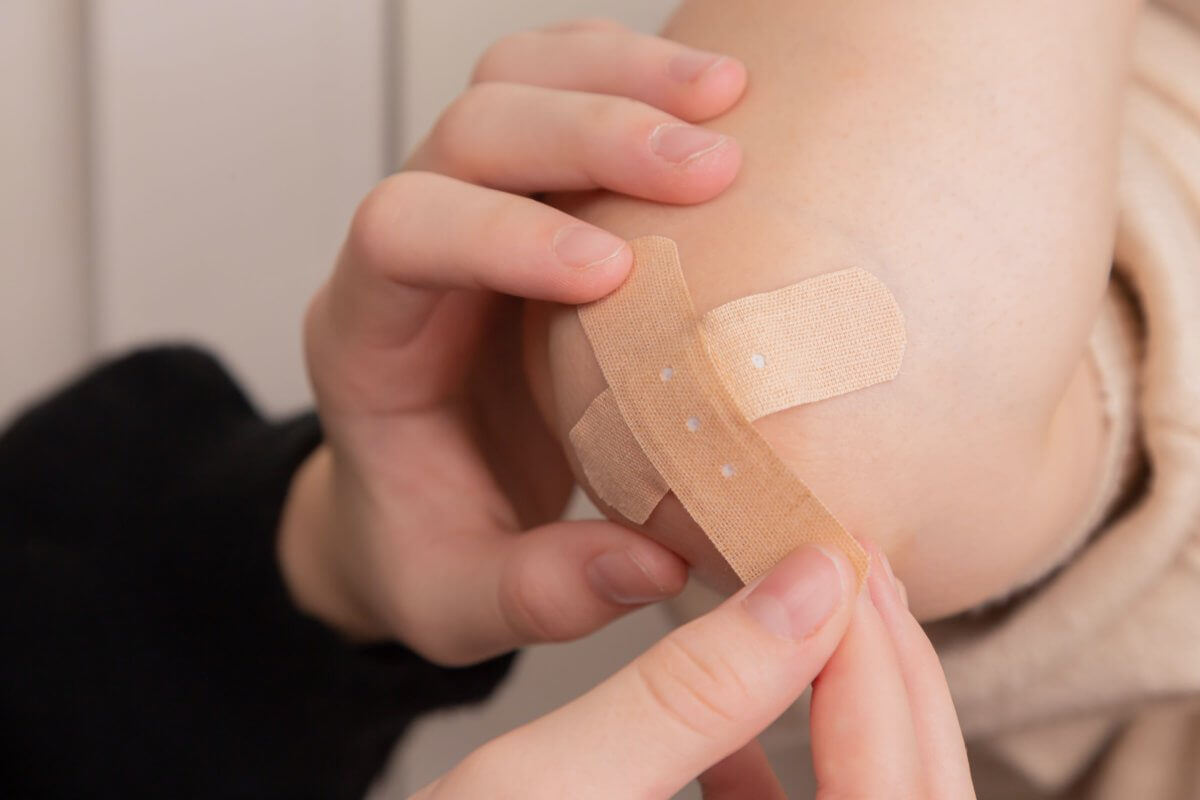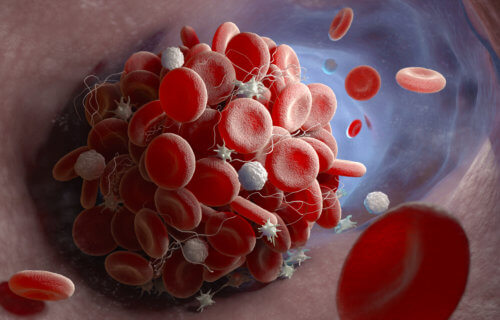VANCOUVER, British Columbia — A safer way to stop blood clots from forming may be on the horizon. Canadian researchers have designed a new compound called MPI 8 that stops clots with no increased risk of bleeding — a common side-effect among existing blood thinners.
“The development of MPI 8 represents a major breakthrough in the field of blood clot prevention and treatment,” says Dr. Jay Kizhakkedathu, a professor and Canada Research Chair at the University of British Columbia’s department of pathology and laboratory medicine and the UBC Centre for Blood Research.
“By targeting a specific molecule involved in clot formation without disrupting the natural clotting process, we’ve created a blood thinner that has proven safer and more effective in animal models, with enormous potential to improve human lives as well,” Dr. Kizhakkedathu continues in a university release.
Blood clots affect millions of people around the world. If left untreated, blood clotting can lead to life-threatening complications, including deep vein thrombosis, heart attack, pulmonary embolism, and stroke. Blood thinners are the go-to treatment for stopping and preventing blood clots. However, these blood thinners carry their own risks, including bleeding.
Heparin is one common blood thinner which targets enzymes that are necessary for blood clotting. However, the medicine needs to be delivered at a specific dosage and monitored since blocking the enzymes affects the normal clotting process needed to heal wounds properly.

How does the new treatment work?
The new approach uses a different target. Instead of enzymes, researchers focused their attention on polyphosphate. This molecule is involved in blood clotting, helping to speed up the process, but it is not essential for healthy clotting.
“Our thought was that polyphosphate might be a safer target to go after with an antithrombotic drug, because it would just slow these clotting reactions down—even if we take out 100 percent of the action of the polyphosphate,” says Dr. Jim Morrissey, a professor of biological chemistry and internal medicine at the University of Michigan.
The team initially vetted multiple drug candidates, including MPI 8. The molecule works because it contains “smart” binding groups with positive charges that are attracted to the negative charges on polyphosphate. When the molecule successfully binds to polyphosphate, it leaves the body’s other negatively charged cells and proteins alone, eliminating any toxic side-effects.
Animal studies showed MPI 8 was effective in preventing blood clots in mice without increasing bleeding risk. The drug showed no toxic side-effects, even at high doses.
“Not only does the drug show promise as a safer and more effective option for patients, but the design platform we used to create MPI 8 is flexible, potentially allowing for the development of additional compounds with similar properties and efficacy,” says Chanel La, who worked on the project as a chemistry PhD student in the Kizhakkedathu lab.
“Assuming our work continues to produce positive results, I would be very excited to get MPI 8 into an approved clinical trial and bring this drug closer to becoming a reality for patients in need.”
The current findings are based on animal testing, meaning more research is necessary to test the safety and effectiveness of MPI 8 in humans. However, these initial results show promise in better helping people with blood clots.
The study is published in Nature Communications.
You might also be interested in:
- Hibernating bears may hold the secret to preventing blood clots in humans
- Ultrasonic ‘tornado’ can break down blood clots in the brain
- New Hope In Coronavirus Fight: Blood Thinners May Help COVID-19 Patients Survive

